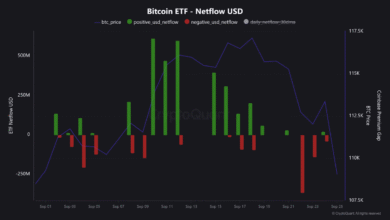
The cryptocurrency mining landscape in Russia has undergone dramatic transformations, particularly for Russian crypto miners operating within urban environments. As digital currencies continue to gain mainstream adoption, miners across Russian cities encounter increasingly complex obstacles that threaten the viability and profitability of their operations.
Russian crypto miners today navigate a treacherous terrain of regulatory uncertainty, infrastructure limitations, and social pressures that didn’t exist during cryptocurrency’s early days. These challenges have reshaped how mining operations function within metropolitan areas, forcing miners to develop innovative solutions or relocate entirely.
The surge in cryptocurrency popularity has brought both opportunities and complications for urban mining operations. While cities offer better internet connectivity and proximity to technical support, they also present unique hurdles that rural miners rarely face. Understanding these challenges becomes crucial for anyone involved in cryptocurrency mining within Russian urban centres.
This comprehensive analysis examines the three most significant challenges facing Russian crypto miners in cities, assessing their impact on the broader cryptocurrency ecosystem and the adaptive strategies employed by miners to overcome these obstacles.
The Current State of Russian Cryptocurrency Mining
Russia’s position in the global cryptocurrency mining industry remains substantial, consistently ranking among the top mining destinations worldwide. The nation’s abundant energy resources, particularly in regions with surplus electricity generation, have historically attracted large-scale mining operations.
Russian crypto miners have established significant operations across various cities, including Moscow and St. Petersburg, as well as smaller industrial centres. These urban mining facilities range from small-scale home operations to warehouse-sized mining farms housing thousands of ASIC machines.
The Russian government’s evolving stance on cryptocurrency regulation has created both opportunities and uncertainties for miners. Recent legislative developments have attempted to clarify the legal framework surrounding cryptocurrency activities, though implementation remains inconsistent across different regions.
Urban mining operations face distinct pressures compared to their rural counterparts. City-based Russian crypto miners must contend with higher real estate costs, stricter zoning regulations, and increased scrutiny from local authorities and residents.
Challenge 1: Regulatory Uncertainty and Legal Complications
Complex Federal and Regional Legislation
The first significant challenge facing Russian crypto miners in cities stems from the complex web of federal and regional regulations governing cryptocurrency activities. Frequent policy shifts and contradictory statements from different government agencies have characterised Russia’s approach to cryptocurrency regulation. Federal legislation regarding cryptocurrency mining exists in a grey area, with laws often lacking specific implementation guidelines. This ambiguity presents significant challenges for urban miners, who must simultaneously navigate multiple regulatory frameworks. City-based operations face additional layers of local regulations that rural miners can often avoid.
Russian crypto miners operating in major cities must comply with business registration requirements, tax obligations, and various permits that smaller operations might circumvent. The lack of clear regulatory guidance makes compliance difficult and expensive, particularly for medium-sized operations.
Taxation Challenges and Reporting Requirements
Tax compliance represents a significant burden for Russian crypto miners in urban areas. The Russian tax authority has implemented increasingly sophisticated tracking mechanisms for cryptocurrency-related income, making it difficult for city-based miners to operate without proper documentation.
Urban mining operations face higher scrutiny due to their visibility and proximity to tax offices. Unlike rural operations that might escape notice, city-based Russian crypto miners must maintain detailed records of their mining activities, equipment purchases, and energy consumption.
The complexity of cryptocurrency taxation in Russia necessitates specialised accounting expertise, which incurs additional operational costs. Many urban miners must hire professional accountants or tax advisors, further reducing their profit margins compared to less regulated environments.
Banking and Financial Service Restrictions
Traditional banking services for Russian crypto miners remain problematic, particularly in urban areas where banks maintain stricter compliance standards. Many financial institutions refuse to provide services to businesses involved in cryptocurrency activities, forcing miners to seek alternative banking solutions.
City-based mining operations require significant capital for equipment purchases, facility rentals, and operational expenses. The inability to access traditional banking services complicates these transactions and increases operational costs through the use of alternative payment methods.
Russian crypto miners in cities often resort to cryptocurrency-only transactions or work with specialised financial service providers, adding complexity and risk to their operations.
Challenge 2: Infrastructure Limitations and Energy Costs
Electrical Grid Constraints in Urban Areas
Urban infrastructure presents the second major challenge for Russian crypto miners operating in cities. Metropolitan electrical grids, designed for residential and commercial use, struggle to accommodate the intensive power requirements of large-scale mining operations.
Russian crypto miners face significant limitations in accessing adequate electrical capacity within city limits. Urban electrical infrastructure often requires expensive upgrades to support mining operations, costs that rural miners can avoid by accessing industrial power sources directly.
The age of the electrical infrastructure in many Russian cities creates additional complications. Older buildings and electrical systems cannot support modern mining equipment without substantial modifications, increasing setup costs and operational risks.
High Energy Costs and Competition
Energy costs in Russian cities typically exceed those in rural and industrial areas, directly impacting the profitability of Russian crypto miners. Urban energy pricing encompasses distribution fees, infrastructure maintenance costs, and regulatory surcharges that rural operations often do not incur.
Competition for electrical capacity in cities drives up costs and creates supply constraints during peak demand periods. Russian crypto miners must compete with residential, commercial, and industrial users for limited electrical resources, often resulting in higher rates or restricted access.
Some urban areas implement tiered pricing structures that penalise high-consumption users, directly targeting mining operations. These pricing mechanisms can make urban mining unprofitable compared to rural alternatives.
Cooling and Ventilation Challenges
Urban mining operations face unique challenges related to heat management and ventilation. Dense city environments limit options for heat dissipation, requiring expensive cooling solutions that rural operations can avoid through natural ventilation.
Russian crypto miners in cities must invest in sophisticated cooling systems to prevent equipment overheating and maintain optimal mining performance. These systems consume additional electricity, further reducing profitability margins.
Building codes and zoning restrictions in urban areas often limit modifications necessary for proper mining facility ventilation. Russian crypto miners must work within existing building constraints or invest heavily in retrofitting facilities to meet operational requirements.
Challenge 3: Social and Environmental Pressures

Noise Complaints and Community Relations
The third significant challenge facing Russian crypto miners in cities involves managing the social and environmental impacts of their operations. Mining equipment generates substantial noise, which creates conflicts with residential communities and commercial neighbours.
Urban mining operations cannot escape community scrutiny the way rural operations can. Russian crypto miners in cities face constant pressure from residents, business associations, and local authorities regarding noise levels, particularly during nighttime hours when mining equipment runs continuously.
Legal challenges from affected communities have forced some urban mining operations to relocate or install expensive soundproofing systems. These additional costs and operational restrictions make city-based mining less attractive compared to rural alternatives.
Environmental Impact Concerns
Public awareness of cryptocurrency mining’s environmental impact has increased pressure on urban operations to demonstrate environmental responsibility. Russian crypto miners in cities face demands for sustainable practices that rural operations often do not encounter.
Urban environmental regulations often include restrictions on energy consumption, carbon emissions, and heat generation that directly impact mining operations. Russian crypto miners must navigate increasingly strict ecological compliance requirements while maintaining profitability.
The visibility of urban mining operations makes them targets for environmental activism and negative media coverage. This scrutiny creates reputational risks that can affect business operations and community relationships.
Zoning and Land Use Restrictions
Urban zoning laws present ongoing challenges for Russian crypto miners seeking to establish or expand city-based operations. Many cities classify mining as an industrial activity, restricting locations where operations can operate legally.
Existing zoning restrictions often prohibit high-energy industrial operations in commercial or mixed-use areas where miners might prefer to locate. Russian crypto miners must find appropriate industrial zones, which may be limited or expensive within city limits.
Changes in zoning regulations can force existing operations to relocate, creating significant costs and operational disruptions. Urban miners face constant uncertainty about the long-term security of their location.
Impact on the Russian Mining Industry
These challenges have significantly impacted how Russian crypto miners approach urban operations. Many large-scale miners have relocated from cities to rural areas or industrial zones where regulations are less restrictive and costs are lower.
The migration away from urban areas has concentrated mining operations in specific regions, creating new challenges related to grid stability and local infrastructure capacity. This geographic consolidation affects the decentralised nature of cryptocurrency networks.
Smaller urban mining operations, particularly home-based miners, continue operating despite challenges but face reduced profitability and increased compliance burdens. These operators often lack resources to relocate or adapt to changing regulations.
Adaptation Strategies and Solutions
Technology Solutions
Russian crypto miners are developing innovative technological solutions to address urban challenges. Advanced cooling systems, noise reduction technologies, and energy-efficient mining equipment help urban operations remain viable despite infrastructure limitations.
Some miners are exploring the integration of renewable energy to address environmental concerns and reduce operational costs. Solar panels, wind power, and other renewable sources can supplement grid electricity and improve public perception of mining operations.
Remote monitoring and automation technologies enable Russian crypto miners to operate efficiently with minimal on-site presence, thereby reducing noise complaints and neighbourhood disruptions.
Collaborative Approaches
Mining pools and cooperative arrangements allow smaller urban miners to share resources and reduce individual operational burdens. These collaborative mmmodels enable Russian crypto mmminers to achieve economies of scale while remaining in urban areas.
Industry associations are working to improve relationships with regulators and communities, promoting best practices and advocating for reasonable regulatory frameworks. These efforts benefit all urban mining operations by creating more predictable operating environments.
Some Russian crypto miners are partnering with existing industrial facilities to access suitable infrastructure and regulatory compliance frameworks, thereby avoiding many of the challenges associated with independent urban operations.
Business Model Evolution
Urban Russian crypto miners are diversifying their business models to include additional revenue streams beyond traditional mining. Services such as equipment hosting, mining consulting, and cryptocurrency trading help offset the reduced profitability of mining.
Some operations are transitioning to focus on newer cryptocurrencies or alternative consensus mechanisms that require less energy and generate less heat, making urban operations more viable.
Russian crypto miners are also exploring opportunities in emerging technologies, such as NFTs, DeFi protocols, and blockchain development services, which leverage their technical expertise while requiring less investment in infrastructure.
Future Outlook for Urban Mining in Russia

The future of Russian crypto miners in urban environments depends largely on regulatory clarity and infrastructure development. Government policies that provide clear guidelines and reasonable compliance frameworks could encourage the development of urban mining.
Technological advances in mining equipment efficiency and cooling systems may make urban operations more viable by reducing energy consumption and heat generation. These improvements could help Russian crypto miners better integrate with urban environments.
Infrastructure investments in urban electrical grids and renewable energy sources could help address some of the current limitations facing city-based mining operations. Such improvements would benefit both miners and broader urban communities.
International Comparisons and Best Practices
Examining how other countries address urban cryptocurrency mining provides insights for Russian crypto miners and policymakers. Countries like Canada, Iceland, and parts of the United States have developed frameworks that strike a balance between the needs of the mining industry and the concerns of urban communities.
Successful international models often include clear regulatory frameworks, incentives for renewable energy use, and community engagement programs that facilitate the integration of mining operations with urban environments positively.
Russian crypto miners can benefit from international best practices in areas such as environmental compliance, community relations, and technological solutions for addressing urban mining challenges.
Economic Impact and Market Dynamics
The challenges facing urban Russian crypto miners have broader economic implications for the cryptocurrency market and local economies. Mining operations contribute to local employment, technology development, and tax revenues when operating successfully.
Restrictions on urban mining may drive operations to other countries or regions, potentially reducing Russia’s share of global mining capacity. This migration could impact the country’s position in the cryptocurrency ecosystem and related economic benefits.
Local economies in cities with successful mining operations often benefit from increased demand for technical services, real estate, and supporting infrastructure. Conversely, overly restrictive policies may eliminate these economic benefits.
Conclusion
The three significant challenges facing Russian crypto miners in cities – regulatory uncertainty, infrastructure limitations, and social pressures – represent substantial obstacles that necessitate innovative solutions and adaptable strategies. While these challenges have compelled many operations to relocate to rural areas, opportunities still exist for urban mining through technological innovation, collaborative approaches, and evolving business models.
Russian crypto miners who successfully navigate these urban challenges often develop competitive advantages through improved efficiency, better community relations, and stronger regulatory compliance. The experience gained from operating in challenging urban environments can provide valuable insights for expanding into new markets or adapting to changing industry conditions.
For More: 4 Cryptocurrency Mining Platforms in 2025 Using Top Mining Rigs








